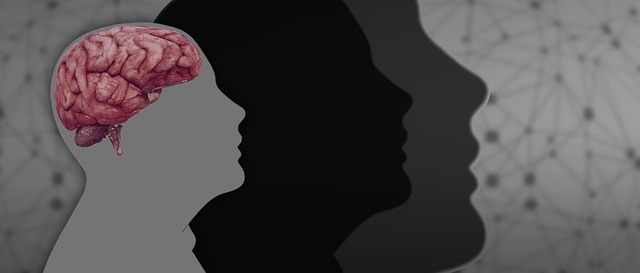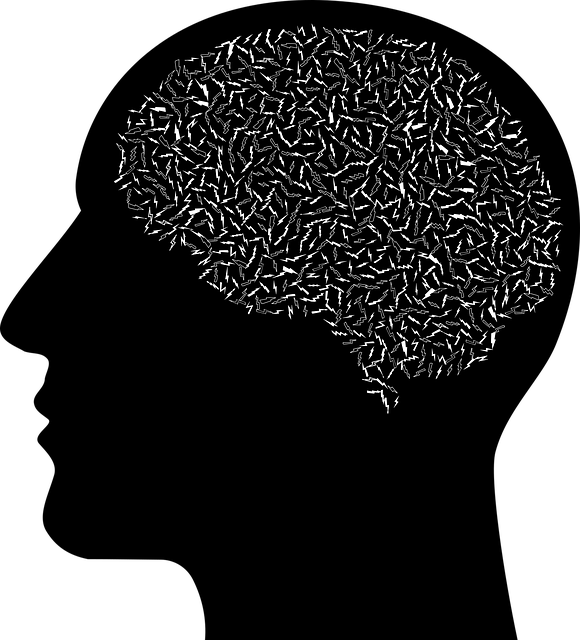The text emphasizes the role of education, awareness, and therapeutic approaches in combating stigma around mental illnesses, particularly Centennial Functional Neurological Disorder (CFND). By integrating CFND therapy, emotional intelligence development, and podcast series, communities can reduce barriers to treatment. Educational initiatives, self-awareness exercises, empathetic healthcare provider strategies, community engagement through tailored programs, conflict resolution techniques, and robust risk management planning all contribute to creating a supportive environment where individuals with CFND feel understood and supported without fear of judgment.
Mental illness stigma remains a significant barrier to treatment, often deterring individuals from seeking help. This article explores comprehensive strategies to reduce stigma and create a more supportive environment. We delve into the profound impact of societal perceptions on mental health seekers, particularly those with functional neurological disorders (FND). Through education, awareness campaigns, therapeutic interventions, and community engagement, we can break down barriers. By embracing evidence-based practices like Centennial Functional Neurological Disorder Therapy, we foster understanding and acceptance, ultimately encouraging timely access to care.
- Understanding Stigma: Its Impact on Mental Health Seekers
- The Role of Education and Awareness in Breaking Down Barriers
- Therapeutic Approaches to Addressing Stigma-Related Anxiety
- Community Engagement Strategies for Long-Lasting Change
Understanding Stigma: Its Impact on Mental Health Seekers

Stigma surrounding mental illness can have profound effects on individuals seeking help. It often acts as a barrier, discouraging people from openly discussing their struggles and pursuing necessary treatment. This is particularly evident with conditions like functional neurological disorders (FNDs), which can be misunderstood and stigmatized within communities. The impact of this stigma can lead to delays in diagnosis and treatment, negatively affecting the emotional well-being of those affected.
Centennial Functional Neurological Disorder Therapy, along with Emotional Intelligence development and effective Mental Wellness Podcast Series Production, can play a pivotal role in combating this issue. By fostering open conversations about mental health and educating the public, these initiatives promote Emotional Well-being Promotion Techniques. Through such efforts, communities can become more supportive, reducing stigma and encouraging those struggling to seek the help they need without fear of judgment or discrimination.
The Role of Education and Awareness in Breaking Down Barriers

Education and awareness play a pivotal role in breaking down barriers associated with mental illness, particularly conditions like Centennial Functional Neurological Disorder (CFND). By integrating empathy-building strategies into educational curricula and community programs, we can foster understanding and acceptance. This involves sharing accurate information about CFND and other mental health challenges, dispelling myths, and highlighting the experiences of those affected.
Promoting self-awareness exercises encourages individuals to reflect on their biases and preconceived notions, fostering a more compassionate environment. These efforts are crucial in encouraging early intervention for mental health issues like depression, preventing escalation and promoting healthier outcomes. Through open dialogue and shared understanding, we can create a society that supports those facing mental illness, ensuring they receive the care and compassion they need.
Therapeutic Approaches to Addressing Stigma-Related Anxiety

Therapeutic approaches play a pivotal role in reducing stigma surrounding mental health issues, particularly anxiety disorders like Centennial Functional Neurological Disorder (CFND). One effective method is fostering self-awareness exercises, encouraging individuals to understand their symptoms and emotions better. By gaining this insight, they can challenge societal misconceptions and internalize the idea that mental illness is as real and treatable as any physical condition.
Empathy building strategies are equally important in stigma reduction efforts. Healthcare providers trained in these techniques learn to communicate with patience and understanding, sharing relatable experiences where applicable. This not only helps patients feel heard but also promotes a sense of community and reduces the isolation often associated with mental illness. Additionally, burnout prevention strategies for healthcare providers are crucial, as they ensure professionals remain empathetic and effective in their support roles, ultimately contributing to more positive patient outcomes and reduced stigma.
Community Engagement Strategies for Long-Lasting Change

Community engagement is a powerful tool in the ongoing battle against mental illness stigma. By actively involving community members and stakeholders, organizations can foster long-lasting positive change. One effective strategy is to design Mental Health Education Programs that cater to diverse audiences, ensuring accessibility and inclusivity. These programs can dispel myths, promote understanding, and encourage open conversations about neurological disorders like Functional Neurological Disorder (FND). For instance, Centennial Functional Neurological Disorder Therapy has successfully partnered with local schools, community centers, and faith-based groups to deliver tailored workshops and seminars.
Additionally, conflict resolution techniques play a pivotal role in these engagement efforts. Encouraging open dialogue between individuals with mental health conditions, healthcare providers, and the general public can help manage misunderstandings and reduce stigma. Risk Management Planning for Mental Health Professionals is another crucial aspect; ensuring therapists and counselors are equipped to handle sensitive discussions and potential conflicts can create a safer environment for everyone involved. These collaborative approaches not only empower communities but also contribute to a more supportive ecosystem for those facing mental health challenges.
Mental illness stigma reduction is a multifaceted endeavor that requires education, community engagement, and therapeutic approaches. By understanding the profound impact of stigma on mental health seekers, we can foster inclusive environments that support those with conditions like Centennial Functional Neurological Disorder (CFND). Through sustained efforts to raise awareness and implement effective strategies, we can break down barriers and ensure individuals receive the help they need without fear of judgment or discrimination. CFND therapy, alongside community-driven initiatives, plays a pivotal role in reducing stigma and promoting mental health equity.












